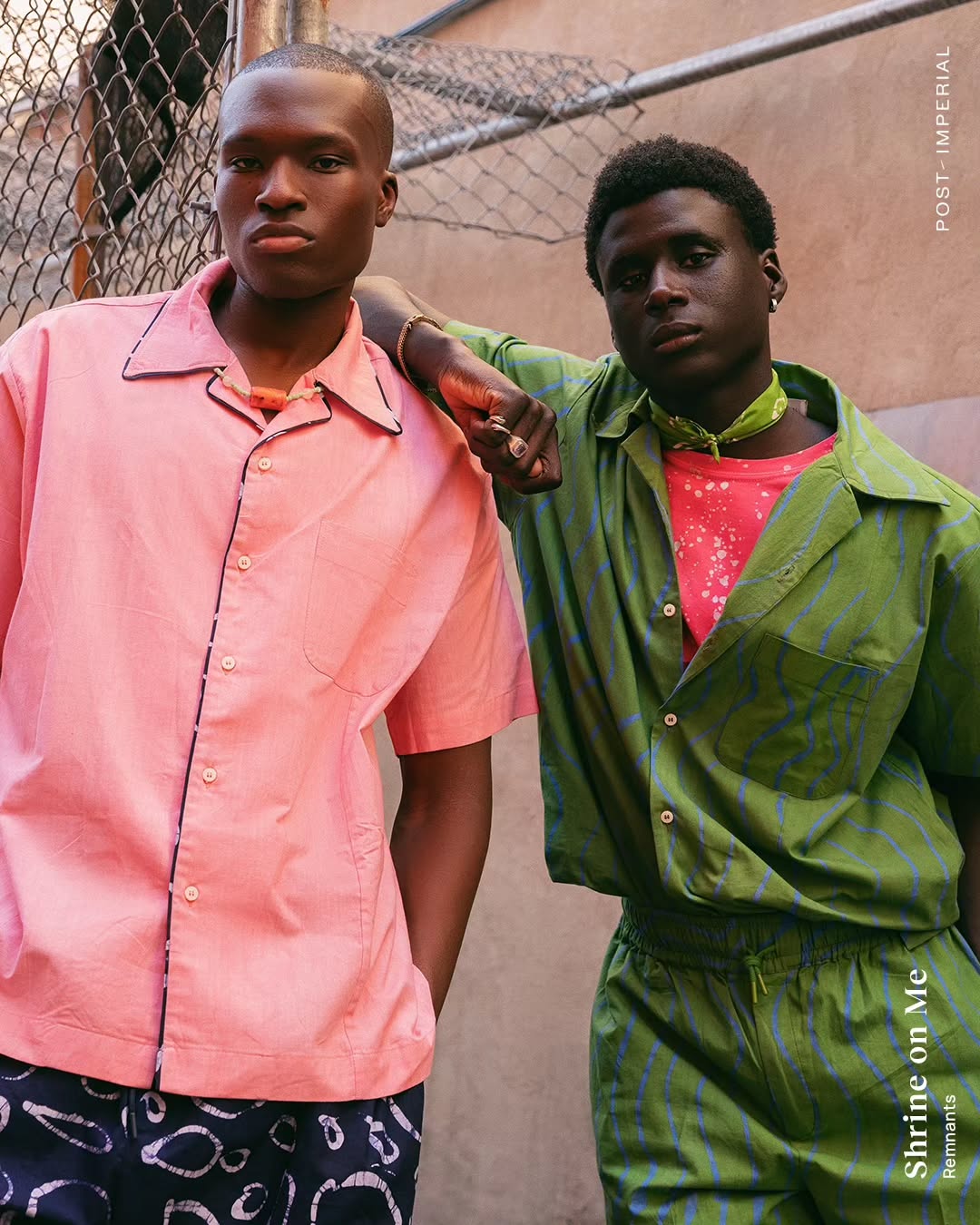Post-Imperial isn’t just a brand—it’s a cultural cipher, decoding diasporic memory, artisan-led innovation, and textile alchemy through the lens of modern menswear. Founded by Nigerian designer Niyi Okuboyejo in 2012, the label has carved out a singular space at the intersection of fashion, mythology, and resistance. While many brands fixate on seasonal storytelling, Post-Imperial pivots to something richer: a collective mythos shaped by material, place, and people.
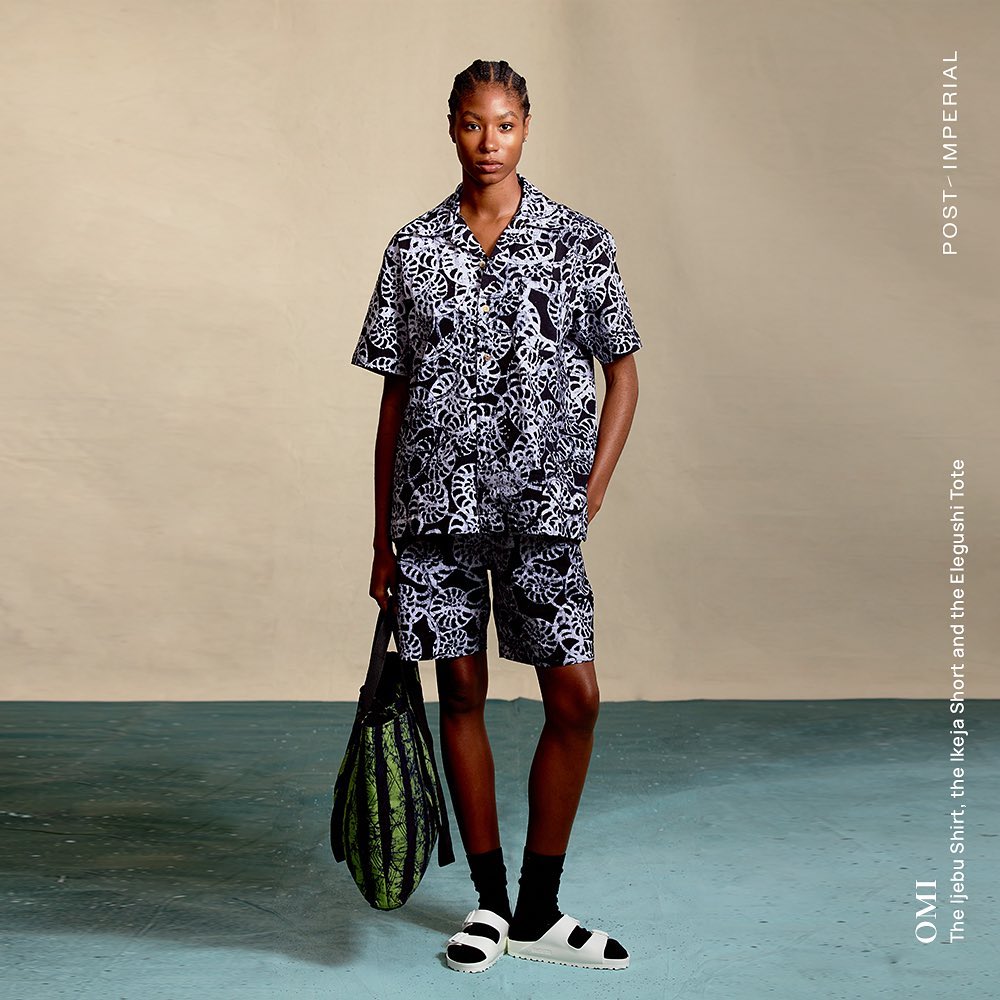
The latest collection is a tactile meditation on comfort—not as an afterthought, but as a core design philosophy. Rendered in lush velvet, breathable canvas cotton, and pillowy sherpa, the silhouettes whisper a new language of ease. Roomy, bohemian tailoring collides with workwear sensibilities, offering pieces that sway effortlessly between the sofa and the boardroom. Whether it’s a relaxed chenille suit or a shirting staple reimagined through centuries-old dyeing techniques, everything feels intentional yet intuitive.
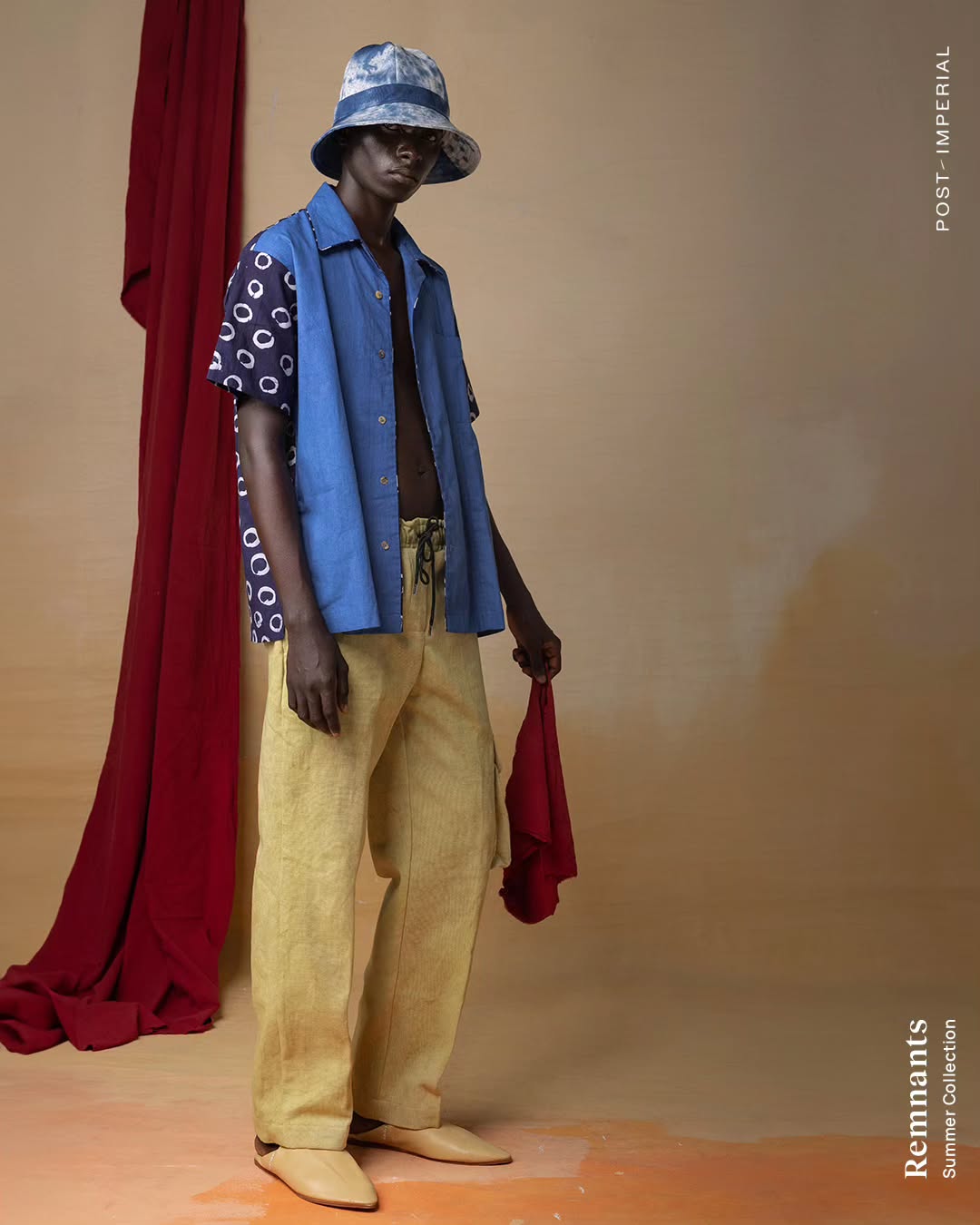
At the heart of Post-Imperial’s process is collaboration. Each garment is a living archive of co-authorship—crafted with Nigerian artisans using the Adire technique, and brought to life with the brand’s fluid construction in New York. The result? Garments that carry the story of where they came from and who made them—without ever diluting their elegance.
Okuboyejo’s design ethos doesn’t centre the individual genius trope. Instead, it dismantles it. Post-Imperial resists the performative polish of fashion’s gatekeeping structures by turning the spotlight outward: toward community, toward heritage, toward a deeper ethics of beauty. Rather than dictating how pieces should be styled or read, the brand invites interpretation. That philosophy is especially evident in the label’s recent collaboration with photographer Joshua Kissi, where creatives in New York’s Little Senegal styled themselves in the collection. The images didn’t just present fashion—they presented belonging.
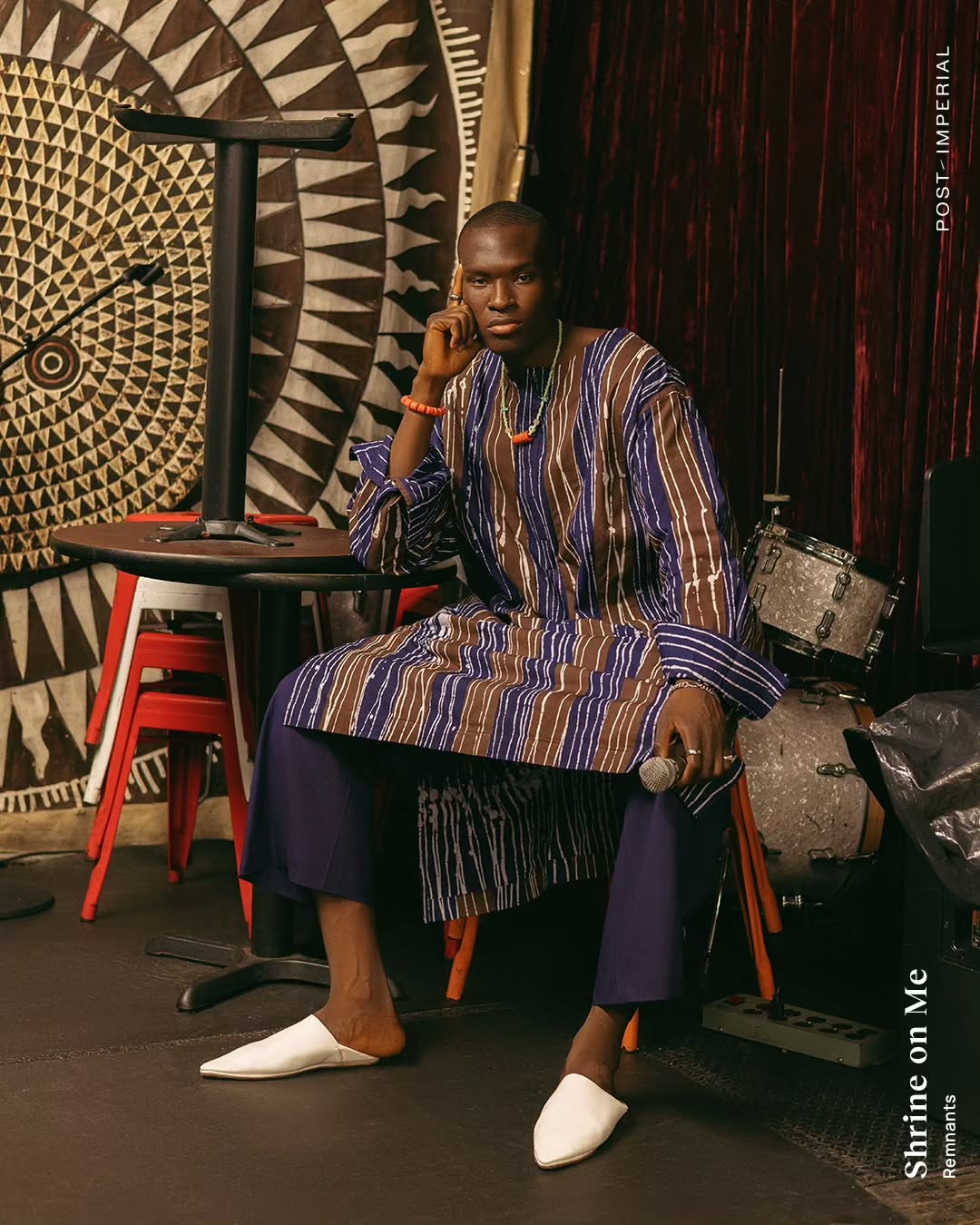
The garments evoke a palette pulled from memory. Shades of mustard yellow, yawning greys, and coastal blues echo both West African cuisine and ancestral landscapes, while the textures—dyed deadstock chenille, plush velvet, and soft knits—carry the weight of storytelling in every thread. Every Post-Imperial drop is rooted in materiality, but never for materialism’s sake. There’s always something more: a gesture toward rehumanising fashion, toward treating clothes as portals rather than products.
Though the brand launched with neckties—frayed at the tip as a quiet nod to deconstruction—it has since evolved into a full wardrobe proposition. Blazers, wide-leg trousers, and oversized tees read like elevated essentials for the fashion-forward man who favours nuance over noise.
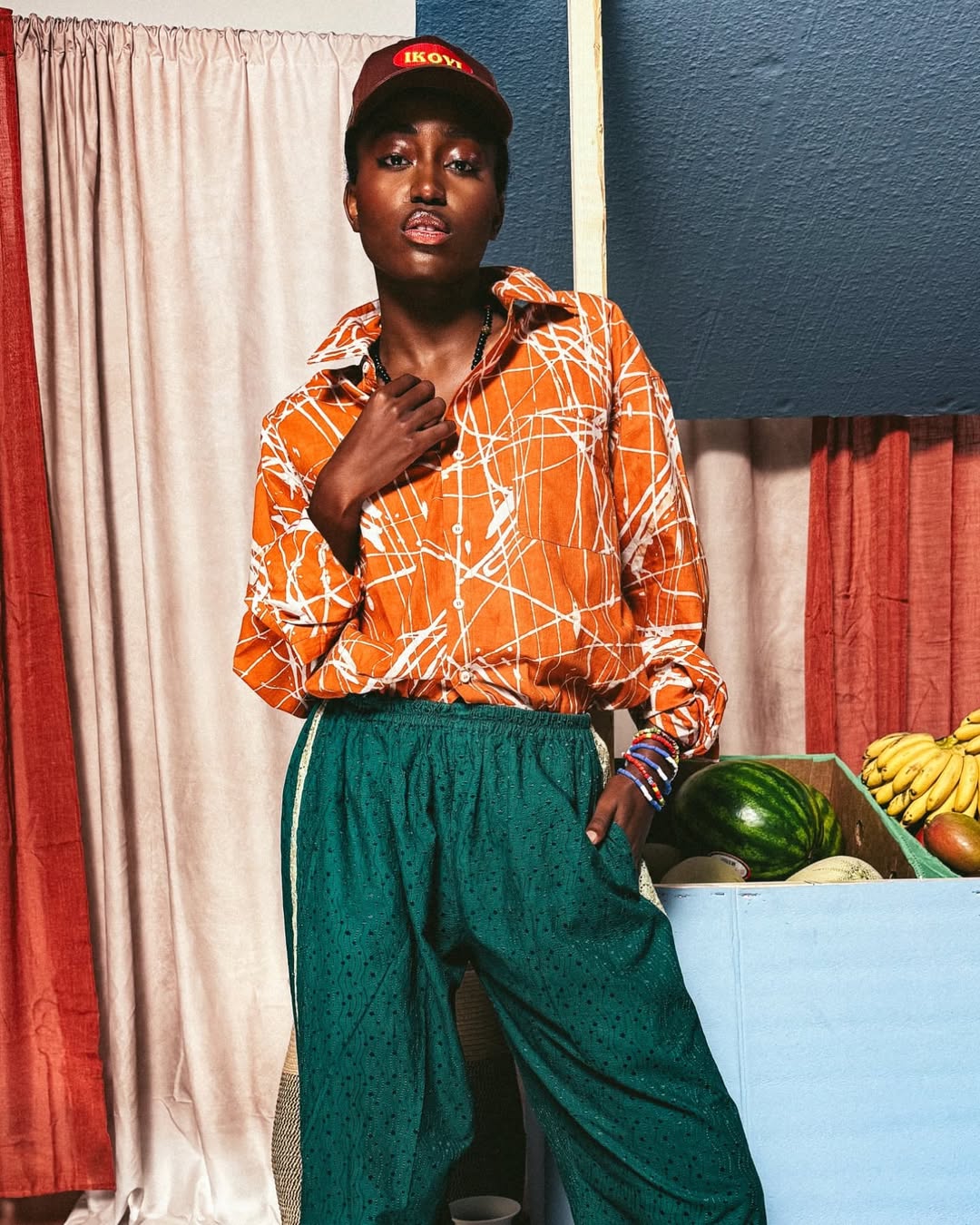
Post-Imperial’s presence at Lagos Fashion Week and ARISE Fashion Week further underlines its commitment to shaping African fashion narratives from the inside out. The label has also earned global recognition, receiving nods from institutions like the CFDA, Harlem’s Fashion Row, and media powerhouses including Vogue and The New York Times.
Yet even with international acclaim, Post-Imperial remains grounded in its mission: to create clothing that connects. Not just in terms of aesthetics, but energetically—through shared myths, ancestral techniques, and a radical softness that reimagines what power can look like.
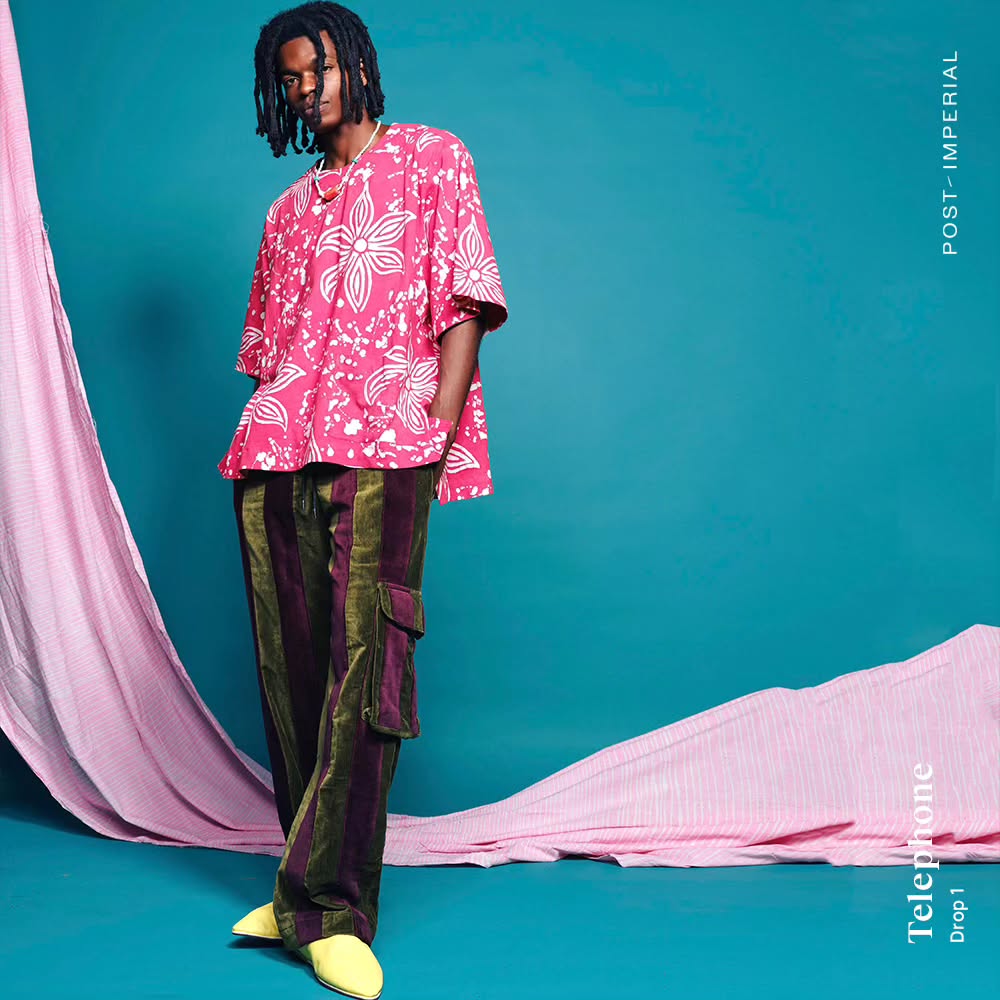
In a world where fashion often chases spectacle, Post-Imperial offers something rare: intimacy. And in doing so, it redefines what it means to dress with meaning.

